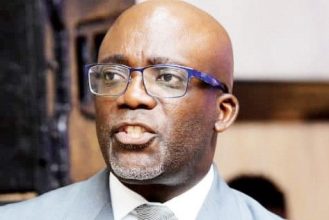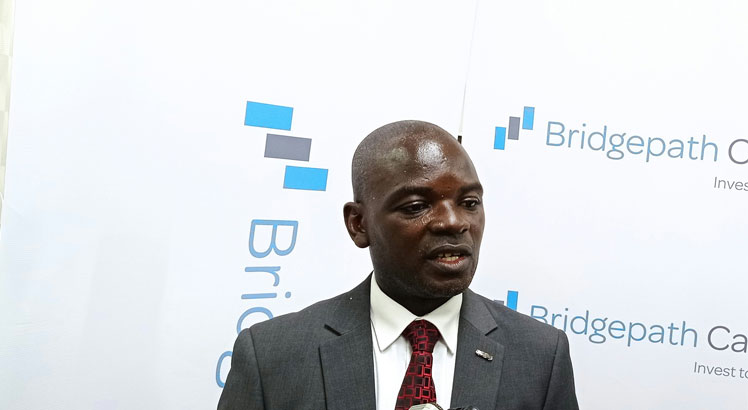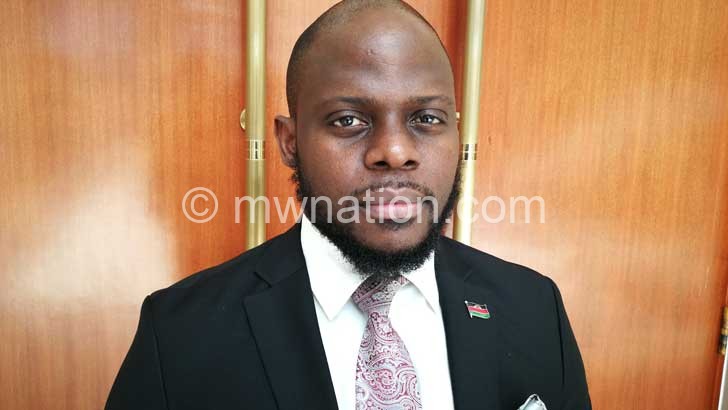National Bank weighs in on IMF, Norway decisions

National Bank of Malawi (NBM) says the IMF’s decision to delay the approval of $20 million [K8 billion] under the three-year Extended Credit Facility (ECF) and Norway’s withholding of $24 million [K9.8 billion] budgetary support will likely lead to a decline in import cover in the fourth quarter [October—December].
The Malawi Stock Exchange (MSE)-listed financial institution said in its economic newsletter for October 2013 that the decision by the International Monetary Fund (IMF) and Norway, one of the key members of the Common Approach to Budget Support (Cabs), may also compel other donors to follow suit.
The two have made their decisions in view of the Capital Hill looting which has defrauded Treasury of billions of kwacha.
“Since the recent performance of the kwacha has been linked to perceptions of market players on the reserves position, the IMF announcement is likely to heighten speculation on the kwacha going forward.
“The above notwithstanding, there may be a silver lining in the cloud as the local currency has already depreciated considerably from approximately K330/1US dollar since the end of the tobacco season to the current levels,” said the biggest bank in terms of assets and market capitalisation.
The kwacha has considerably depreciated against other major trading currencies and is now officially trading at K412 to a dollar, K654 to pound, K550 to euro and K42 against the rand.
But the bank said the value of the kwacha is still lower than at K420 to a dollar where it peaked in April this year after the 49 percent devaluation of May 2012.
“The current high price of the currency is therefore already curbing demand for the dollar to some extent reinforced by the fact that most importers took advantage of the strong kwacha earlier in the year to stock up for expected sales in the last quarter of the year,” said the bank.
NBM said the ongoing devaluation is, therefore, only eating into economic rents of most businesses as they already priced their goods at K420 to a dollar in April 2013 which is when the local currency peaked.
The bank has forecast that the kwacha is expected to trade at current levels though with some marginal depreciation.
The IMF has projected that Malawi economic growth as measured by gross domestic product (GDP) is expected to rebound from a tepid 1.8 percent in 2012 to five percent in 2013 largely buoyed by improvements in agricultural, forestry and fishing sector and thereafter forecast to peak at 6.1 percent in 2014.
The agriculture sector will peak mainly on the recovery of tobacco output from 79 million kilogrammes (kg) last year to 156 million kg in 2013 which has raked in $361.8 million from $177 million last year.






Here we go again! Malawian intellectuals where are you? Why are you letting professional politicians ruin this economy? For over 50 years we have been told that agriculture alone will transform this economy. Today political parties are regrouping and reaffirming to continue with agriculture. I have been out of the country for 25 years but I can still speak Chichewa! “Nyimbo imodzi sagonela gule”, (you don’t dance to one song all night). Why do politicians think subsistence agriculture is the only solution? Investment in agriculture is good to provide food and some cash crops and no doubt it is best suited for the rural masses. However, no country has ever created wealth, jobs and transformed its economy on the basis of agriculture alone. Our young intellectuals from our universities have no jobs because there are no industries to absorb them. Industries create jobs. The problem of this on going commitment to a mono policy of agronomics is that we cannot grow the national wealth. War torn countries all around us are overtaking Malawi GDP – as we are stuck in first gear. Below see for yourself where mono agri policy has left Malawi (ignore the first UN list) but check the IMF list on the link below.
http://en.wikipedia.org/wiki/List_of_countries_by_GDP_(nominal)
Oh, by the way those Mozambican refugees we used to help, whose economy was in tartars, they went home and rebuilt their economy with industries such as Mozal and their economy is grown 3 times bigger than Malawi. The Rwanda refugees also went home and the economy has overtaken us to about double. These are not European but third world economies beating Malawi pants down. Do politicians really still think agri policy is the way to go? Let us manufacture aluminium metal from Bauxite on Mulanje and other places. That will provide shipping containers for better distribution of agri products (tangerines, oranges, avocados, mangoes etc which are rotting on the ground.
We need a twin strategy of a) agriculture and b) manufacturing. In the end manufacturing push will absorb all young intellectuals into rewarding jobs. In addition, manufacturing will create high value for exports to strengthen the kwacha, it will improve farming productivity with implements made in Malawi. I am aware of the limitations we face that since birth all we have seen is farming and I know how “nsima has cast a spell on this country” but let us try to think outside nsima box. I will keep banging on about the need for twin policy including manufacturing until one political party listens and adopts this policy to transform Malawi. They will succeed without a doubt. The manifesto of any party that wants to transform Malawi must incorporate a twin economic growth strategy of a) agriculture and b) manufacturing. If parties do not appreciate industry, that is why Malawi is not creating a business friendly environment. They implement policies that kill industries and by association kill jobs. If any party wants to wants to create jobs then surely promoting industry is the way to go not just agriculture. Ok so which job does agriculture investment create for a young graduate from Chanco or Poly graduate and so on? How does that support our bright young minds coming out of Bunda eager to boost farm productivity with industrial inputs they cannot get in Malawi? Importing them is the wrong approach. Over reliance on IMPORTS is ruining the kwacha and is what is killing this economy. It is the reason why the IMF have been camping in your backyard since 1980 and will continue to do so for the next 100 years as long as politicians keep pushing agriculture as a sore solution for the country. The hardship is not limited to people. Our animals are languishing. A cow in the US is surrounded with industrial luxury feed, care and benefits from scientific breakthroughs with proper milking facilities to produces 30 litres of milk a day. A poor cow in Malawi can only manage half a litre a day…that is if it does not step on your calabash and break it ..spilling the last drop of milk.LOL.
Malawian intellectuals please advise political parties that we cannot go on like this for the next 50 years sing the same song that has not delivered in past 50. Only we Malawians can industrialise this economy by recognising the importance of manufacturing. Otherwise we are perpetuating the world view that Africans (well, Malawians) are not capable of critical thought and technologically incompetent- a view I categorically refuse to endorse!!!
Yet it is politicians who are bringing down the country. The poor and even working class will continue to suffer simply because somebody wants to use tax payers money to stay in out. Please do not make politics to be a source of income. Put the people first. Develop the people so that they can develop themselves. What we see are just hand outs to a few individuals for political gains. That is exploitation of the poor. Posing for photos with the elderly just for political gains. Why don’t you just open charity organization to take care of the elderly and orphans? In the end you are just stealing tax payers money. We know whta it take to build a house and how can Lilongwe all of a sudden have such big personal houses and mostly belonging to civil servants without a morgage? What about the cars civil servants drive?
I agree with you London, Our government needs to put in structures that attract investment in the critical sectors like manufacturing and tourism. We have the potential as a country but we do not have people patriotic enough to steer this country into the right direction. Our politicians are hungry for two things.. to enrich themselves at the expense of poor malawians and to continue staying in power which means their focus is not on uplifting malawi. As a result, they commit our resources to these two objectives and in the meantime the country grows poorer and poorer. I also blame us Malawians as a nation, we do not make our leaders accountable for their actions. Take the current cashgate saga for instance, we are busy doing our own things, and somehow thinking that someone out there will solve this problem for us, only problem is– noone other than Malawians ourselves can solve this problem. Im not talking about striking or anything like that, but we need to critically assess why we are in this situation, why did this occur and what can we do to ensure that it doesnt recur in future. What comes to mind is the constitution, the powers of the parliament, the powers of the oversight bodies like the ACB etc. Whats their scope and how can we strenghthen them. These are the things that can make us grow, we must learn from our mistakes and perfect our situation through them.
No , we need to strike !! A key Malawian characteristic is not addressing up coming issues and ignoring things … How do you go to work when 30% of your pay is going to government officials who will spit in your face at any given chance ? Cowardly professionals … Keeping your head down doing clerical work with your masters degrees and Phds … Zamkutu !! Mukagwere uko !!
Banks, why talk now, you were irresponsible in allowing cashing dubious amounts that required thorough consultations.
amayi anatiwuza kuti tizitakata nde vuto lili pati